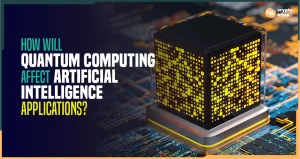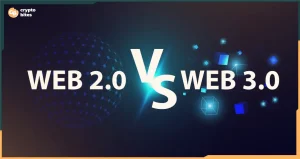
Blockchain Zero Knowledge Proof: The Ultimate Privacy Solution
Disclaimer: This is not intended as investment advice in any form.
Blockchain technology has revolutionized the way we store and transfer data. However, the transparency of the blockchain can sometimes lead to privacy concerns. This is where zero-knowledge proof comes in. Zero-knowledge proof is a cryptographic technique that allows you to prove the authenticity of a statement without revealing the details of the statement itself.
With zero-knowledge proof, you can prove that you have knowledge of a specific piece of information without revealing the information itself. This technology has significant implications for the blockchain industry, as it allows for secure and private transactions without revealing sensitive data. Zero-knowledge proof is becoming increasingly popular in blockchain and decentralized finance (DeFi) for enhancing privacy and security.
In this article, we will explore the concept of zero-knowledge proof and its applications in blockchain technology. We will also discuss the challenges and future of zero-knowledge proof. By the end of this article, you will have a better understanding of how zero-knowledge proof works and how it can be used to enhance the security and privacy of blockchain transactions.
Key Takeaways
- Zero-knowledge proof is a cryptographic technique that allows you to prove the authenticity of a statement without revealing the details of the statement itself.
- Zero-knowledge proof has significant implications for the blockchain industry, as it allows for secure and private transactions without revealing sensitive data.
- Zero-knowledge proof is becoming increasingly popular in blockchain and decentralized finance (DeFi) for enhancing privacy and security.
Understanding Zero-Knowledge Proof
The Concept of Zero-Knowledge Proof
Zero-knowledge proof (ZKP) is a cryptographic technique that enables one party to prove to another that a statement is true without revealing any information beyond the validity of the statement. In other words, ZKP allows you to prove you know something without revealing what you know.
The concept of zero-knowledge proof was first introduced in 1985 by Goldwasser, Micali, and Rackoff. Since then, it has been widely used in various fields such as blockchain, cryptography, and cybersecurity.
The term “zero-knowledge” refers to the fact that the proof does not reveal any knowledge beyond the fact that the statement is true. This means that the verifier cannot learn anything about the information that the prover is trying to prove.
Types of Zero-Knowledge Proof
There are two main types of zero-knowledge proof: interactive zero-knowledge proof (iZKP) and non-interactive zero-knowledge proof (NIZKP).
Interactive zero-knowledge proof requires communication between the prover and the verifier. The prover sends a series of messages to the verifier, who responds with a challenge. The prover then sends another message based on the challenge, and this process continues until the verifier is convinced that the statement is true.
Non-interactive zero-knowledge proof, on the other hand, does not require any communication between the prover and the verifier. Instead, the prover generates a proof that can be verified by the verifier without any interaction. This type of proof is often used in blockchain technology, where it is important to verify the authenticity of a transaction without revealing any sensitive information.
One of the most popular types of non-interactive zero-knowledge proof is zk-SNARKs (Zero-Knowledge Succinct Non-Interactive Argument of Knowledge). zk-SNARKs are used in various blockchain applications, including Zcash and Ethereum.
In conclusion, zero-knowledge proof is a powerful cryptographic technique that allows you to prove the validity of a statement without revealing any additional information. There are two main types of zero-knowledge proof: interactive and non-interactive. Non-interactive zero-knowledge proof is often used in blockchain technology, where it is important to verify the authenticity of a transaction without revealing any sensitive information.
Blockchain and Zero-Knowledge Proof
Zero-Knowledge Proof in Blockchain
Zero-knowledge proof (ZKP) is a cryptographic protocol that allows one party to prove to another party that a statement is true, without revealing any information beyond the truth of the statement itself. In the context of blockchain, ZKP is used to enhance privacy and security in transactions.
ZKP is particularly useful in blockchain because it allows for the verification of transactions without revealing sensitive information such as the amount of money being transferred or the identity of the parties involved. This makes it an important technology for decentralized finance (DeFi) and other blockchain applications where privacy is a critical concern.
Security and Privacy in Blockchain
Security and privacy are two of the most important concerns in blockchain. While blockchain is inherently secure due to its decentralized nature, there are still vulnerabilities that can be exploited by malicious actors. ZKP provides an additional layer of security by allowing transactions to be verified without revealing sensitive information.
ZKP can also be used to ensure privacy in blockchain transactions. For example, Zcash is a cryptocurrency that uses ZKP to enable shielded transactions, which are completely private and untraceable. This makes it an attractive option for those who value privacy and anonymity.
In addition to privacy, ZKP can also be used for ownership verification, compliance, and other applications where sensitive information needs to be protected. For example, Manta Network and Mantapay are two projects that use ZKP to enable privacy-preserving transactions and tokenization.
Overall, ZKP is an important technology for blockchain and cryptocurrency. It provides an additional layer of security and privacy, which is critical for decentralized systems. As blockchain continues to evolve, we can expect to see more use cases for ZKP, as well as other privacy-preserving technologies such as zero-knowledge execution environments (ZKEVMs), Web3, and zk-rollups.
Applications of Zero-Knowledge Proof

Zero-Knowledge Proof (ZKP) is a cryptographic technique that has found many applications in blockchain. Here are some of the applications of ZKP:
Zero-Knowledge Proof in Cryptography
ZKP has been used in cryptography to prove the authenticity of a message without revealing the message itself. This is particularly useful in scenarios where the message is confidential and the sender does not want to reveal its contents. ZKP can be used to prove that a message was sent by a specific sender without revealing the contents of the message.
Zero-Knowledge Proof in Decentralized Finance
ZKP has also been used in decentralized finance (DeFi) to ensure privacy and security in transactions. ZKP can be used to prove that a transaction is valid without revealing the details of the transaction. This is particularly useful in DeFi where transactions involve cryptocurrencies and decentralized exchanges. ZKP can be used to enable zk-rollups, which are a type of Layer 2 scaling solution that allows for faster and cheaper transactions on a decentralized system. Polygon is an example of a blockchain that uses zk-rollups to enable faster and cheaper transactions.
Zero-Knowledge Proof in Identity Verification
ZKP can also be used in identity verification to ensure privacy and security. ZKP can be used to prove that a user has a specific identity without revealing any other details about the user. This is particularly useful in scenarios where privacy is important, such as decentralized identity verification. ZKP can be used to enable zero-knowledge proofs of authentication, which allow users to authenticate themselves without revealing any personal information.
In summary, ZKP has a wide range of applications in blockchain, including cryptography, DeFi, and identity verification. By enabling privacy and security, ZKP has become an essential tool in the blockchain ecosystem.
Challenges and Future of Zero-Knowledge Proof

Implementing zero-knowledge proofs (ZKPs) in blockchain technology is not without its challenges. In this section, we will explore some of the current challenges and the future of ZKPs.
Efficiency
One of the challenges of ZKPs is efficiency. ZKPs require a lot of computational power and time to execute, which can be a problem for large-scale applications. This can be a barrier to adoption, especially for applications that require real-time verification.
Validity of a Statement
Another challenge is ensuring the validity of a statement. ZKPs rely on the witness to prove the statement’s validity, and if the witness is incorrect, the proof will be invalid. This can be a problem for applications that require high levels of accuracy, such as voting systems.
Decentralization
ZKPs can also face challenges when it comes to decentralization. ZKPs require a trusted setup, which can be a problem for decentralized systems. It’s important to ensure that the setup is secure and cannot be manipulated by any one entity.
Confidentiality
Confidentiality is another challenge for ZKPs. While ZKPs are designed to keep information private, there is still a risk of information being leaked. It’s important to ensure that all components of the ZKP are implemented securely and that the proof is kept private.
Future of ZKPs
Despite these challenges, ZKPs have a bright future in blockchain technology. As computer science and mathematical proof systems continue to advance, ZKPs will become more efficient and easier to implement. ZKPs have the potential to revolutionize blockchain technology by providing a tunnel to locked doors and secret codes, making fraud more difficult and ensuring the correctness of transactions. With the work of pioneers like Goldwasser and Rackoff, ZKPs are set to become an integral part of the blockchain ecosystem.
In Closing: The Future is Zero-Knowledge
Blockchain technology, hailed as the backbone of a new digital age, carries a promise: to bring about transparent, tamper-proof, and decentralized systems. However, with this transparency comes the question of privacy. That’s where zero-knowledge proofs (ZKPs) make their mark. As we’ve seen, they offer a revolutionary way to retain the core benefits of blockchain without sacrificing data security or individual privacy.
Introduced by visionaries like Goldwasser, Micali, and Rackoff, and now embedded in sophisticated platforms like Zcash and Ethereum, ZKPs ensure that sensitive information remains shielded. From their distinction as interactive and non-interactive to their role in cryptographic messaging, decentralized finance, and identity verification, ZKPs are reshaping the frontier of what’s possible in blockchain.
However, with great power comes great responsibility. The challenges of efficiency, validation, and decentralization beckon the innovators of today to devise solutions for tomorrow. But one thing is clear: as the digital landscape continues to evolve, the significance of zero-knowledge proofs in maintaining a balance between openness and privacy is undeniable.
As we step into this new era, where data is the new gold, ZKPs stand as the sentinels, ensuring that while the world might know we have a secret, it remains just that—a secret. The future of blockchain, undoubtedly, has zero-knowledge at its heart.
Frequently Asked Questions
What are some examples of zero-knowledge proof in blockchain technology?
Zero-knowledge proofs can be used in various ways in blockchain technology. One example is in the verification of transactions without revealing any sensitive information about the parties involved. Another example is in the authentication of users without revealing their identity.
How is zero-knowledge proof used for authentication in blockchain?
Zero-knowledge proof is used for authentication in blockchain by allowing users to prove their identity without revealing their personal information. This is done by verifying that the user has access to a specific piece of information without revealing what that information is.
What companies are implementing zero-knowledge proof in their blockchain projects?
Several companies are implementing zero-knowledge proof in their blockchain projects. Some examples include Zcash, Ethereum, and Quorum.
What is the difference between interactive and non-interactive zero-knowledge proof in blockchain?
Interactive zero-knowledge proof requires interaction between the prover and verifier, while non-interactive zero-knowledge proof does not. Interactive zero-knowledge proof is more complex but can provide stronger security guarantees.
Can zero-knowledge proof be used for identity verification in blockchain?
Yes, zero-knowledge proof can be used for identity verification in blockchain. It allows users to prove their identity without revealing their personal information.
What research has been done on zero-knowledge proof in blockchain technology?
Research on zero-knowledge proof in blockchain technology has focused on improving the efficiency and scalability of zero-knowledge proof systems, as well as exploring new applications for the technology. Some notable research includes the development of zk-SNARKs and zk-STARKs, which are more efficient forms of zero-knowledge proof.




